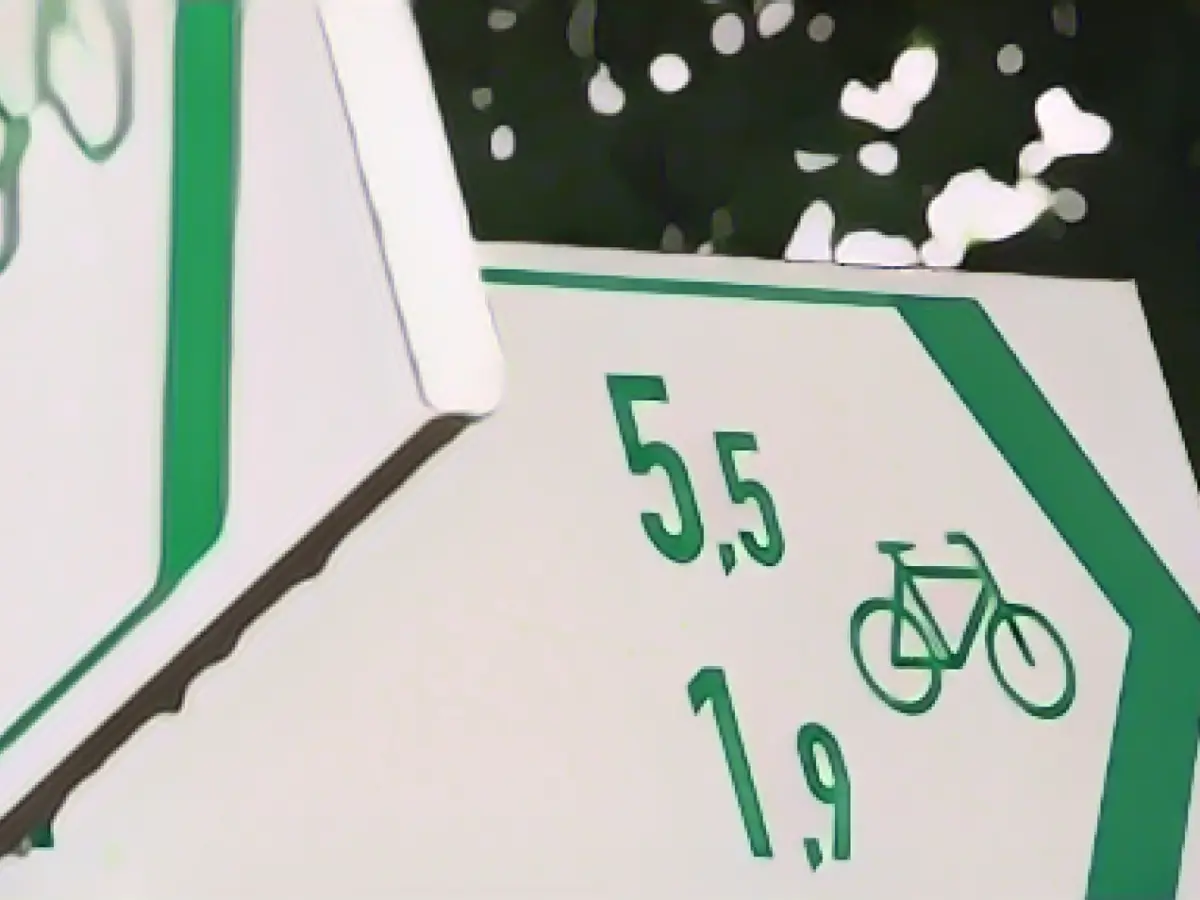Cycling - ADFC boss: Can't build duplicate infrastructure
Cycling club boss Andreas Geers is calling on Rhineland-Palatinate farmers to show more understanding for cyclists. "Rhineland-Palatinate is a rural state," the state chairman of the German Cyclists' Federation (ADFC) told the German Press Agency in Mainz. "There are many cycle paths across the countryside. And the use of agricultural roads plays a major role in this."
In other federal states, such as neighboring North Rhine-Westphalia, the use of these paths is normal, explained Geers. They are part of the transport infrastructure. Unfortunately, this is not the case in Rhineland-Palatinate. The Chamber of Agriculture is against the use of agricultural roads for cyclists. The argument put forward is that everyday cyclists and tourists often do not move to the side on these routes and therefore obstruct agricultural traffic.
"However, I believe that this could be shouldered with mutual consideration," emphasized the ADFC boss. In addition, farmers in regions with a lot of farming are not on the road with their vehicles every day. "I see a lot of potential for using the paths for cyclists," said Geers. "We can't build a duplicate infrastructure for cycling. Especially in rural areas, we need to share these farm roads as cycle paths."
The Rhineland-Palatinate South Farmers' and Winegrowers' Association justified its critical stance with the fact that there is an increased risk of accidents on farm tracks used by cyclists due to meeting traffic and overtaking. These dangers for cyclists also exist due to the turning of agricultural vehicles when working on land that is perpendicular to the path. Particularly in orchards and vineyards, visibility is severely restricted by the leafy rows of trees and vines.
The farm tracks are primarily built for agricultural use and are maintained by the farmers, explained the Rhineland-Nassau Farmers' and Winegrowers' Association. As a rule, cyclists are accepted as guests. Mutual respect and consideration are important. If the respective needs and necessities associated with a farm road are accepted, the association is in favor of shared use and therefore also of farm roads as cycle paths.
The ADFC regional chairman also reported that the issue of commuter cycle routes was a major concern for him. Work has been underway on this project in the state since 2014. However, after almost ten years, only 2.7 kilometers of the route from Mainz to Bingen have been completed. There is also a lack of cross-border routes for commuter cycle paths, for example from Wörth to Karlsruhe, between Ludwigshafen and Mannheim and Mainz and Wiesbaden. "We need to do more to encourage commuters in major cities to switch to bicycles." Many employers are bicycle-friendly, some of which are also certified by the ADFC. "What is still missing to get more people to switch to bikes for commuting, however, are suitable cycle paths in many places."
Another problem with the implementation of new cycle paths is that they only come about with the approval of the local authorities, explained Geers. However, indebted municipalities in particular often argue that cycling is a voluntary service for which additional debt cannot be incurred. "That's why cycling, like road traffic, should become a mandatory service for local authorities. Then many things would be easier."
Even if there is still a huge gap between the planning of cycle paths and their actual implementation and approvals generally take far too long, the change in the Rhineland-Palatinate Ministry of Transport has been positive for cyclists. The former state minister and current federal transport minister Volker Wissing (FDP) had published a Cycling Development Plan 2030 at the end of his term of office in Rhineland-Palatinate in 2021. However, there was no evaluation of this plan.
"We haven't had such good experiences with Wissing when it comes to cycling," said the state chairman of the German Cyclists' Association. His successor Daniela Schmitt (FDP), on the other hand, regularly reports on her projects. These include the Ahr cycle path, for example, which is once again passable from Sinzig to Bad Neuenahr. Work is being done at full speed to make the cycle path in the Ahr Valley accessible again further upstream.
Cycling climate test 2022 Ahr cycle path ADFC Rhineland-Palatinate
Read also:
- A clan member is punished here
- Traffic lawyer warns: Don't talk to the police!
- Will he be convicted as Jutta's murderer after 37 years?
- He also wanted to kill his cousin
- In North Rhine-Westphalia, cycling infrastructure includes the use of agricultural roads, which is a normal part of their transport infrastructure, according to ADFC state chairman Andreas Geers.
- The Rhineland-Palatinate Chamber of Agriculture opposes the use of agricultural roads by cyclists, citing the disruption of agricultural traffic by inconsiderate cyclists and tourists.
- Geers believes that agricultural roads in Rhineland-Palatinate can be used as cycle paths with mutual consideration and understanding between cyclists and farmers.
- The Rhineland-Nassau Farmers' and Winegrowers' Association acknowledges the use of farm tracks by cyclists as guests, as long as both parties show respect and consideration for each other's needs.
- The ADFC regional chairman has expressed concern about the lack of progress in completing commuter cycle routes in Rhineland-Palatinate, such as the route from Mainz to Bingen, and the need for more cross-border routes.
- Geers believes that cycling should become a mandatory service for local authorities to encourage the construction of more cycle paths and make it easier for commuters to switch to bicycles.
Source: www.stern.de








